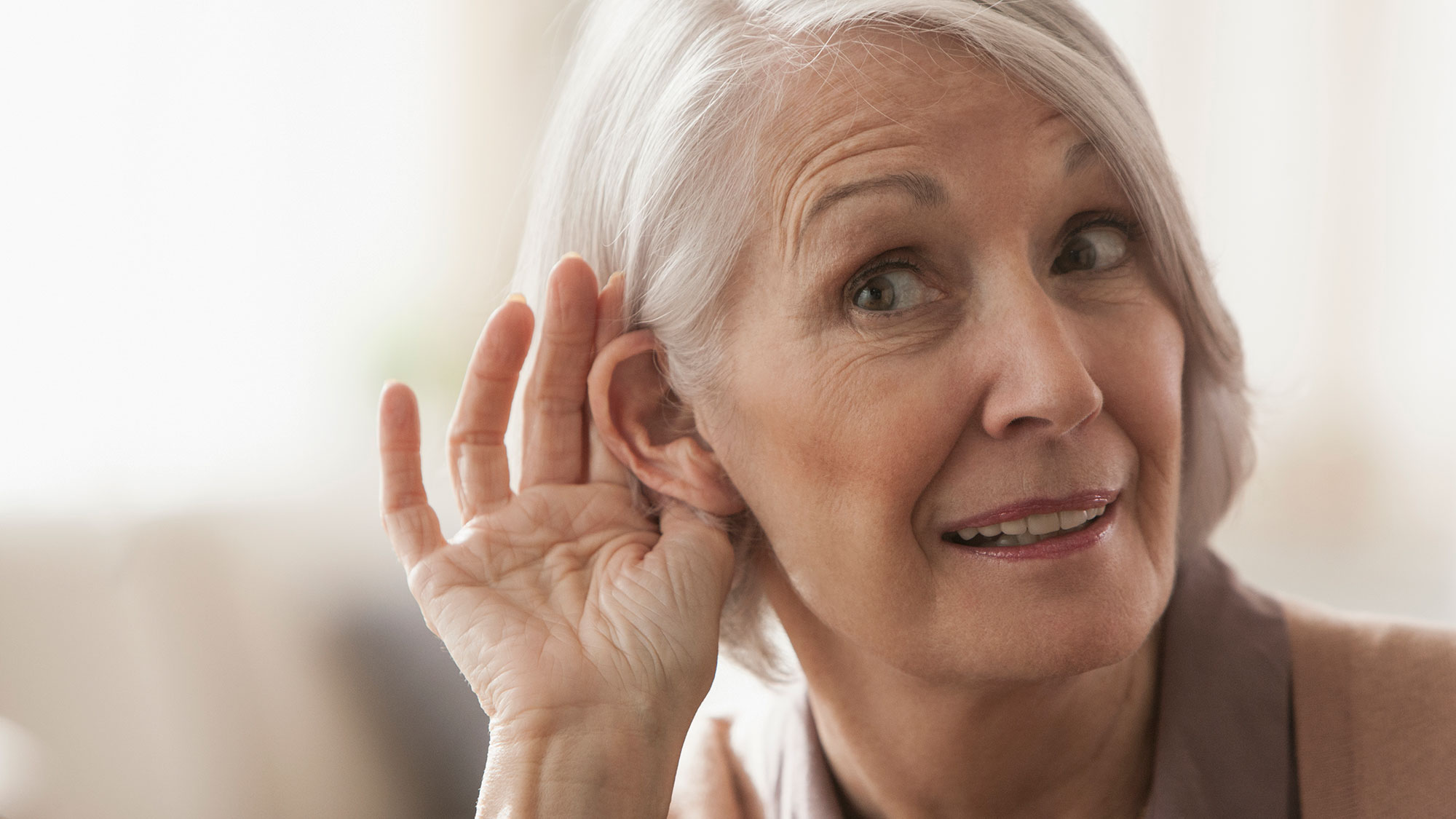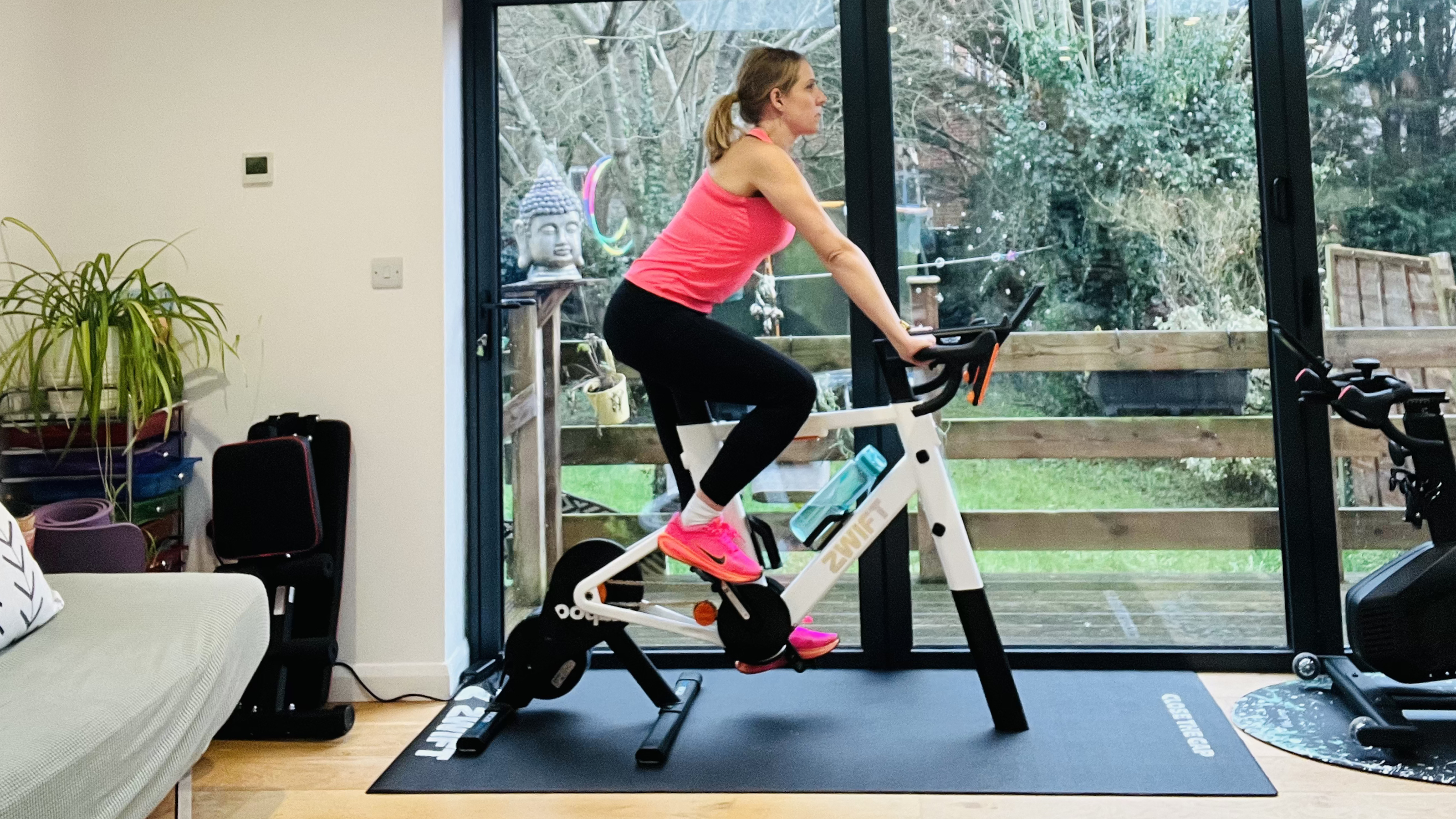6 facts about hearing loss that will probably surprise you
Learn more and be inspired to take action with these little-known facts about hearing loss


If you have some degree of hearing loss, you’re not alone. While hearing loss often isn’t talked about as openly as it needs to be, it’s much more common than you might think.
According to the Hearing Loss Association of America, hearing loss affects 48 million people to some degree in the United States alone. Yet despite affecting so many people, the facts about hearing loss - such as they fact that it's more prevalent in men, its link with dementia, or that it's not just something that occurs in old age - often come as a surprise.
Below we outline six such facts, in the hope that they inspire anyone experiencing the signs of hearing loss to take action. The bottom line is that hearing loss is nothing to be ashamed of, and seeking help will make sure you don’t miss out on the conversations and social events that bring you joy.
1. Over one billion young people are in danger of developing hearing loss
Hearing loss is often viewed as something that only affects older people - but this is not true.
While age is the strongest predictor of hearing loss among adults, over one billion teens and young adults are in danger of developing hearing loss worldwide, due to unsafe listening and recreational practices caused by the modern technology boom.
A study conducted by the World Health Organization (WHO) found that nearly 50% of young adults aged 12-35 are regularly exposed to unsafe levels of sound from their personal audio devices and entertainment venues.
Commenting on the findings, researcher Dr. Etienne King issued a warning for young people placing themselves at risk of hearing loss, noting: “They should be aware that once you lose your hearing, it won’t come back.”
Start your week with achievable workout ideas, health tips and wellbeing advice in your inbox.
While it’s true that most hearing loss isn’t reversible, there are plenty of steps you can take now to protect your hearing, such as using earplugs around loud noises and turning down the volume on your devices.
2. Sound over 70 decibels can cause damage to hearing
Hearing loss can result from a single loud noise close to your ear but, more often than not, the damage occurs over time after repeated exposure to loud sounds.
Whilst you probably already know that prolonged exposure to loud noise isn’t good for your ears, what exactly constitutes loud?
Sound is measured in decibels (dB) with a whisper being around 30 dB, a normal conversation sitting around 60 dB, and a motorcycle engine coming in at 95 dB. WHO recommends that the highest level of safe noise exposure is 85 dB for no more than eight hours, but the Centers for Disease Control and Prevention (CDC) suggest that exposure to noise above 70 dB over a prolonged period can start to damage your ears.
If you’ve ever found yourself annoyed while stuck in city traffic (80-85 dB) or feel pain in your ears when standing near a siren (120 dB), that’s your ear’s way of signaling the noise is too loud. But even seemingly pleasurable activities, such as attending a concert (110 dB) or a sports game (100 dB) can cause issues in less than 15 minutes.
While you probably don’t want to give up attending your favorite events, you can reduce your risk of hearing loss by protecting your ears with earplugs or noise-canceling earphones, turning down the volume on your devices, and by taking regular listening breaks when engaged in noisy activities.
3. Most people wait an average of 7 years before seeking help
Surely if someone’s hearing was deteriorating they’d be rushing to get help, right? Wrong.
Most people who have hearing loss wait an average of seven years before seeking help. The reasons for this vary, with common ones including people underestimating how bad their hearing actually is, concern over needing to wear a hearing aid, and embarrassment.
However, delaying seeking help can result in more than hearing trouble; it can also have a devastating effect on mental health, increasing the risk of developing depression and anxiety. It can also lead to social isolation and withdrawal from activities that were once enjoyable.
So if you want to help a loved one you suspect is suffering from hearing loss or you’re worried about your own hearing, seek help sooner rather than later. The earlier the hearing loss is diagnosed, the less likely it is that a person’s quality of life will be negatively affected.
4. Only 1 in 5 people who would benefit from hearing aids actually wear them
Many people put off going for a hearing test because they’re reluctant to wear hearing aids. According to data from the National Institutes of Health (NIH), approximately one-third of Americans between the ages of 65 and 74 and nearly half of those over 75 have hearing loss, but only 20% seek help. And for every five people who could live better with hearing aids, only one will actually wear them. Even after diagnosis, hearing aid users wait an average of 10 years before being fitted for their first set of hearing aids.
Many cite social stigma, perceived lack of benefit, the difficulty of use, size and uncomfortable design as reasons for avoiding hearing aids. But while a lot of these reasons were valid a decade ago, hearing aid technology has come a long way in recent years.
Today's hearing aids are much smaller and more discreet than they used to be, with many modern, sleek designs available that are comfortable to wear all day, even if you also wear glasses. Some even come with built-in bluetooth technology, whilst others reflect light in the same way that hair and skin do, making them 'blend in'. And, when fitted correctly, they allow you to continue to enjoy all that life has to offer.

5. Men are twice as likely to develop hearing loss as women
Men aren’t more genetically predisposed to hearing loss than women, but they’re typically far more likely to work in factory, military, or construction roles where they’re exposed to harmful levels of noise on a daily basis.
Studies have confirmed that higher rates of noise-induced hearing loss in men are likely the result of occupational and lifestyle differences between the sexes, with women typically working in industries where noise levels are much lower.
Long-term exposure to loud sounds like bulldozers, chainsaws, jackhammers, and airplanes taking off, can begin to cause hearing damage in as little as eight hours - the equivalent of one work day.
6. Untreated hearing loss can increase the risk of dementia
In a report published by the Lancet Commission, researchers revealed that hearing loss is the largest modifiable risk factor against dementia.
Backing up an earlier study conducted by John Hopkins Medicine, the report shows that mild hearing loss doubles the risk of dementia, and moderate hearing loss triples it.
While researchers aren’t yet fully clear on the link between dementia and hearing loss, Dr. Frank Lin, lead researcher in the John Hopkins study, notes: “Brain scans show us that hearing loss may contribute to a faster rate of atrophy in the brain. Hearing loss also contributes to social isolation. You may not want to be with people as much, and when you are you may not engage in conversation as much. These factors may contribute to dementia.”
Unaddressed hearing loss is potentially responsible for 9% of dementia cases, with Alzheimer's Disease International (ADI) stating that 'using hearing aids seems to reduce the risk.' This is backed up by Dr. Lin, who says: “What we do know is that they help most people who try them. And in those people, they can make all the difference in the world—allowing people to re-engage with friends and family and to be more involved again.”
Kathryn is a freelance health and wellness writer. She previously worked for 10 years as an educator in the health care industry before leaving to spend her days indulging her love of writing. An avid meditator and long-distance walker with a passion for mental and emotional wellbeing, she’s happiest when she’s surrounded by mountains and oceans. When not writing words or thinking about them while walking, she can usually be found brewing a cup of herbal tea from her vast collection or trying to figure out healthy ways of incorporating chocolate and peanut butter into almost every meal.
-
 I tried using the Zwift Ride indoor bike for 30 days and it got me out of a workout slump and jump-started a love of cardio
I tried using the Zwift Ride indoor bike for 30 days and it got me out of a workout slump and jump-started a love of cardioHow a month on an indoor smart bike turned cardio into a habit
-
 Jessica Biel’s trainer reveals how she works out when she’s “juggling work life and mom life” and it’s a great way for anyone to train
Jessica Biel’s trainer reveals how she works out when she’s “juggling work life and mom life” and it’s a great way for anyone to trainIt’s a “short and sweet full-body workout” plus we’ve included a more beginner-friendly version
